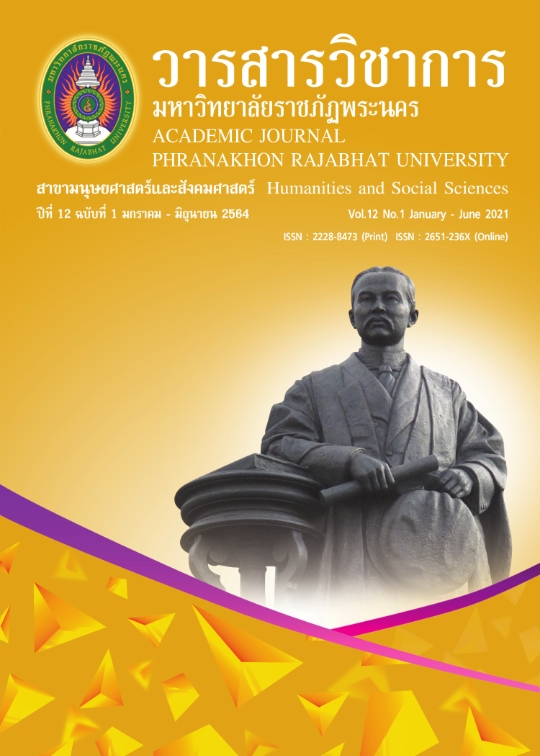THE GUIDELINE OF ADMINISTRATION PROMOTION OF THE SUFFICIENCY ECONOMY PHILOSOPHY IN DIGITAL AGE OF SCHOOLS UNDER NONTHABURI PRIMARY EDUCATION SERVICE AREA OFFICE 2
Keywords:
Management in the digital, age Sufficiency Economy PhilosophyAbstract
The objectives of this research were to study, compare and propose a guideline for promoting management in the digital age according to the Sufficiency Economy Philosophy in schools. Under the Office of Nonthaburi Primary Educational Service Area 2. The sample group was school administrators. And 310 teachers under the Nonthaburi Primary Educational Service Area Office 2. The tools were structured questionnaires and interviews. Data were analyzed by frequency, percentage, mean, standard deviation, t-test, One-way ANOVA, LSD, and content analysis.
The research results were as follows: 1) Administration in the digital age according to the philosophy of sufficiency economy in schools The overall picture is at a high level. The highest average is general administration. They are followed by academic administration, Budget management, And personnel management, respectively. 2) The opinions of administrators and teachers on digital age administration according to the philosophy of sufficiency economy in educational institutions by gender, education level, and overall school size differ. When classified by work experience as a whole, there is no difference. And 3) Guidelines for promoting management in the digital age according to the sufficiency economy philosophy in educational institutions. Executives should have a vision of bringing technology to be used in the school's direction to support innovation and new technology. And should encourage teachers Educational personnel to use media or applications to benefit oneself and the public with caution. They are fostering modesty, reasonableness, and good immunity for school personnel to use social media properly. There is transparency in management. And promote educational institutions to be a learning organization.
References
Chaikitthanaporn, L. (2017). Management of School Sufficiency Economy Philosophy in the Opinion School of Administrators and Teachers under Chaina Primary Educational Service Area Office. Journal of Education. Journal of Education Mahamakut Buddhist University 5(1), Abstract. (in Thai)
Comsutthi, N. (2020) The study of School Administration based on Sufficiency Economy Philosophy in School under Ubon Ratchathani Primacy Educational Service Area Office 3. Bua Bundit Educational Administration Journal, Ubon Ratchathani University, 20 (2), Abstract. (in Thai).
Jarernpoom, U. (2018). A Study of Application The Philosophy of Sufficiency Economy Foracademic Administration in Schools Under The Secondary Educational Service Area 31 Office. Journal Research Community 12 (1), Abstract. (in Thai
Krejcie, R. V. & Morgan, D. W. (1970). Determining Sample Size for Research Activities. Educational and Psychological Measurement. 30 (3), Page 607-610.
Luangklang, R. (2015). The guidelines for school administration with the Philosophy of Sufficiency Economy in office of the Basic Education commission schools under Udonthani primary Education. Journal of Education, Mahasarakham University, 9 (Special edition), Abstract. (in Thai).
Nonthaburi Primary Education Service Area Office 2. (2015). 4year basic development plan 2016-2019. (Policy and Plan Group). Nonthaburi Primary Education Service Area Office 2, Nonthaburi, (in Thai)
Pimsalee, T. (2015). Education Administration in According to Sufficien Economic Philosophy of Schools in Amphoe Nayung Under Udonthanee Primary Educational Service Area Office 4. (Master of Education Thesis). Burapha University, Chonburi, (in Thai)
Rareng, S. (2016). Sufficiency School Administration Using the sufficiency economy philosophy of schools under the Secondary Educational Service Area Office 1. (Master of Education Thesis). Suansunandha Rajabhat University, Bangkok, (in Thai)
Thipburi, S. (2016). Problems and Impediments to Sufficiency Economy Schools’ Administrator in Nonthaburi Province for Thailand 4.0 Policy. Journal of Graduate Studies M. 14 (2), Page 19. (in Thai)
Downloads
Published
How to Cite
Issue
Section
License
"บทความวิชาการในวารสารฉบับนี้ ถือเป็นความรับผิดชอบของผู้เขียนเท่านั้น"
สงวนลิขสิทธิ์ตามพระราชบัญญัติลิขสิทธิ์




